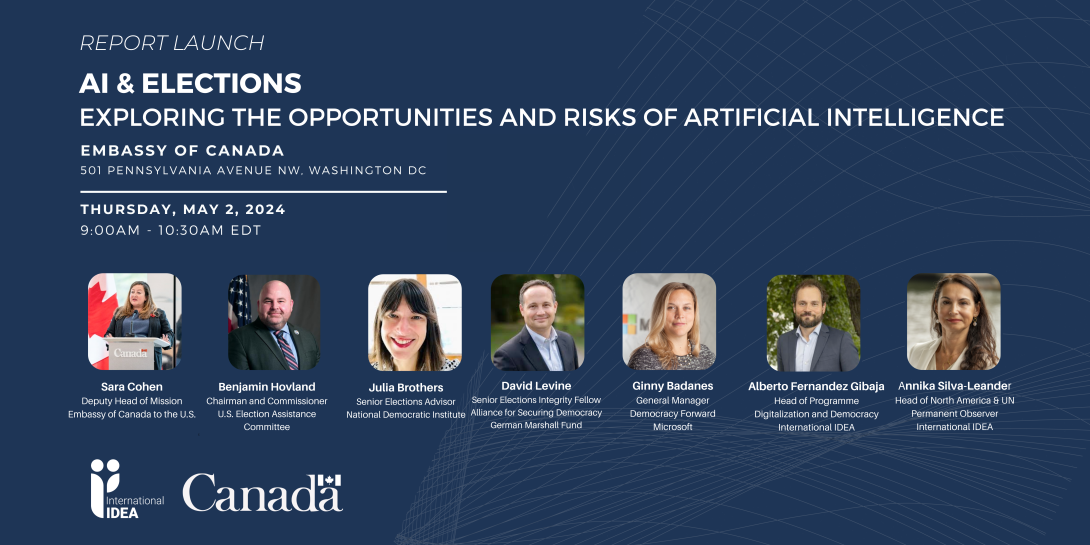
Smart Elections: is AI the Next Wave in Electoral Management?

The electoral Supercycle year of 2024 is giving evidence to the already significant impact of artificial intelligence (AI) on elections. AI's effect on democracy is inevitably set to escalate as the AI industry is currently experiencing an explosive annual growth rate of 36.5%. All the while, AI remains largely unregulated in many countries. Although many EMBs have been using systems that would qualify as AI for years, new developments in AI tech present new challenges and opportunities. While many focus on its disruptive character, AI powered instruments hold great potential to engender democratic norms and uphold free and fair elections. To secure AI’s potential to benefit democracy, IDEA is delving into how AI can be, and already is, used by electoral management in order to protect the integrity of the electoral process.
The advancing capabilities of AI systems hold the potential to enhance electoral accessibility, protect information integrity and facilitate logistical planning. Systems can help EMBs algorithmically streamline voter list management, counteract the spread of electoral disinformation, and detect anomalies in election results. On the flipside, handing over the responsibilities of electoral management to AI systems without the right cautionary measures could entail unpredictable and harmful consequences. This uncertain fate in part stems from a lack of interpretability in the operational processes behind AI computations, so called ‘black boxes’, which obfuscates why models produce specific results. A lack of understanding risks resulting in erroneous output (generative AI ‘hallucinations’), inconspicuous discrepancies and discriminatory biases which may seriously undermine the fairness of elections if implemented without considerate human oversight.
The core responsibility for the oversight of how AI is implemented in elections lies in the hands of EMBs. Electoral authorities’ understanding of AI implementation, the risks involved and how to mitigate adverse effects directly determines the technologies’ efficacy and reliability for democracy. Despite the urgent need to strengthen knowledge on AI in electoral management, research on the topic is scarce. This creates obstacles not only in the advancement of AI to benefit electoral processes, but also hampers EMBs’ abilities to effectively recognize and tackle the potential uses of AI to disrupt elections. The effects of this can be seen on a global scale, as countries hosting elections struggle to keep up with disinformation narratives made possible by Generative AI technologies, such as deepfakes and AI-scripted fake account networks.
In response to this increasingly salient challenge, IDEA has created a resource for EMBs considering using AI for elections and electoral management. In the report ‘Artificial Intelligence for Electoral Management’, we overview both existing and possible future use-cases of AI by EMBs, including their implementation, possible concerning implications and available mitigation strategies. As AI use-cases are significantly affected by the context in which they are implemented, the report also delves into how AI is used by other actors seeking to influence elections and how AI regulation could impact the work of electoral authorities. The publication is a key contribution to IDEA’s mandate to support democratic institutions in harnessing technological advancement to foster democratic values. Support which is crucial to develop and adapt to the new technological paradigm of elections.
The publication was recently launched in Washington D.C. at an event hosted by the Canadian Embassy and with the participation of Microsoft, the National Democratic Institute and the German Marshall Fund. Watch the full recording of the event here.





